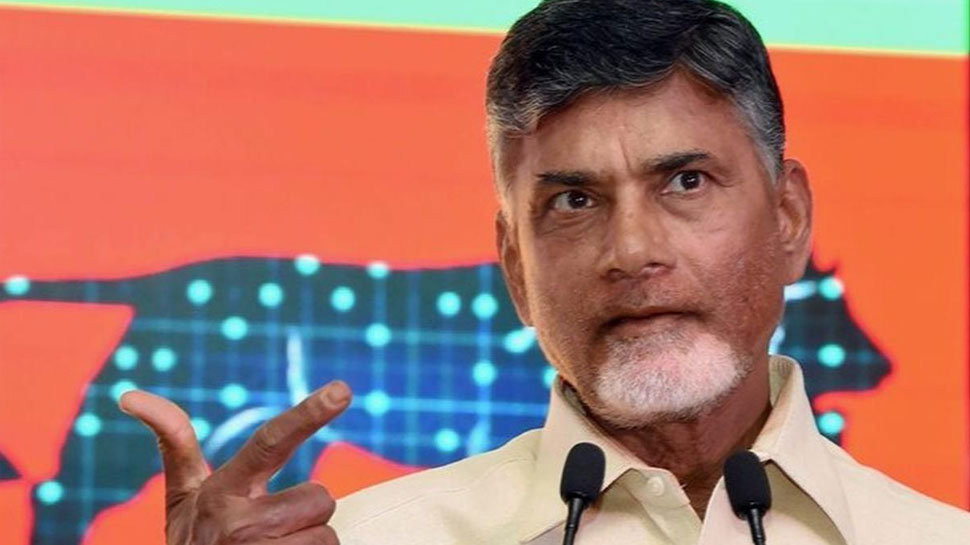
Naidu accuses EC of bias, complains on transfers, EVMs; EC rebuts

Andhra Pradesh Chief Minister N Chandrababu Naidu on Saturday (April 13) met Chief Election Commissioner Sunil Arora here and submitted a memorandum alleging that a large number of EVMs malfunctioned during polling in the state on Thursday and inadequate security led to incidents of violence.
Accusing the Election Commission of bias, he claimed that police and administration officers were removed arbitrarily, creating policy paralyses in the administration. He also demanded that the EC return to the ballot paper system to “preserve the sanctity of the electoral process” as there was a “possibility of tampering” with EVMs.
“The manner in which the Election Commission of India, a constitutional body,… miserably failed to live up to the spirit of the constitutional duty, is not only disturbing but also dangerous to the future of democracy in the country,” the TDP chief said.
Naidu alleged that the Election Commission transferred the state chief electoral officer, Srikakulam district magistrate, Superintendents of Police of Kadapa and Srikakulam and DG (Intelligence) without valid reasons, affecting the morale of the officers in the state.
The Commission is learnt to have given Naidu a point-by-point response to all his complaints. Naidu was told that none of the returning officers were removed and only one district election officer was shunted out, sources said. Naidu claimed that the transfer of the DG (Intelligence), who looks after the security of the chief minister, compromised his safety.
The Chief Minister alleged that the EC acted “according to the whims and fancies of the YSR Congress Party’s candidates” while complaints by his TDP were ignored. He claimed the SP of Prakasam district was transferred soon after the opposition’s nominee made a threatening statement against the police officer. “The chief secretary was not only unceremoniously removed, but his replacement was done without even consulting the state government, which goes against established conventions and procedures of democratic governance,” the memorandum quoted Naidu as saying.
“Transferring the chief secretary just a few days before the election is atrocious and the failure of the election machinery (in the state) can be attributed to this hasty step,” the Andhra Pradesh Chief Minister said.
But the EC is understood have told Naidu that the chief secretary was shunted out for failing to comply with poll panel’s orders.
Naidu also alleged that after his party quit the NDA, the BJP in connivance with the YSR Congress Party unleashed central agencies like the Income Tax department and the Enforcement Directorate against TDP leaders ahead of the elections. “Is it not the responsibility of the EC to curb such politically motivated raids on the TDP to throttle its election campaign?” he asked.
During the election in the state on April 11, voting was delayed by two to six hours at many polling stations as a large number of EVMs malfunctioned, forcing many voters to return home, the TDP chief claimed. The chief electoral officer of the state himself had trouble casting his vote because the EVMs were not working, he alleged.
On the electronic voting machines malfunctioning, Naidu was told by the EC that ground data showed that 1.75 per cent of EVMs were replaced. He was also told that the voter turnout in both Lok Sabha and assembly elections was impressive, the sources said.
The TDP requested the poll body to countermand polls at 618 polling stations where voting could not start even many hours after the scheduled commencement time. “Inadequate security arrangement at polling booths emboldened criminal elements that resulted in many law and order incidents, costing one man his life. Many polling stations were manned by just a home guard or a volunteer,” he claimed.
Naidu proposed that if there is a mismatch in the EVM-paper trail machine counting, then all results must be matched in the entire Assembly seat. As per a recent Supreme Court order, a random match of EVM and paper trail machines will be held in five polling stations per assembly segment. Earlier, it was one per Assembly seat.
Simultaneous elections were held on April 11 to 25 Lok Sabha seats in the state and to elect a new 175-member Assembly.

